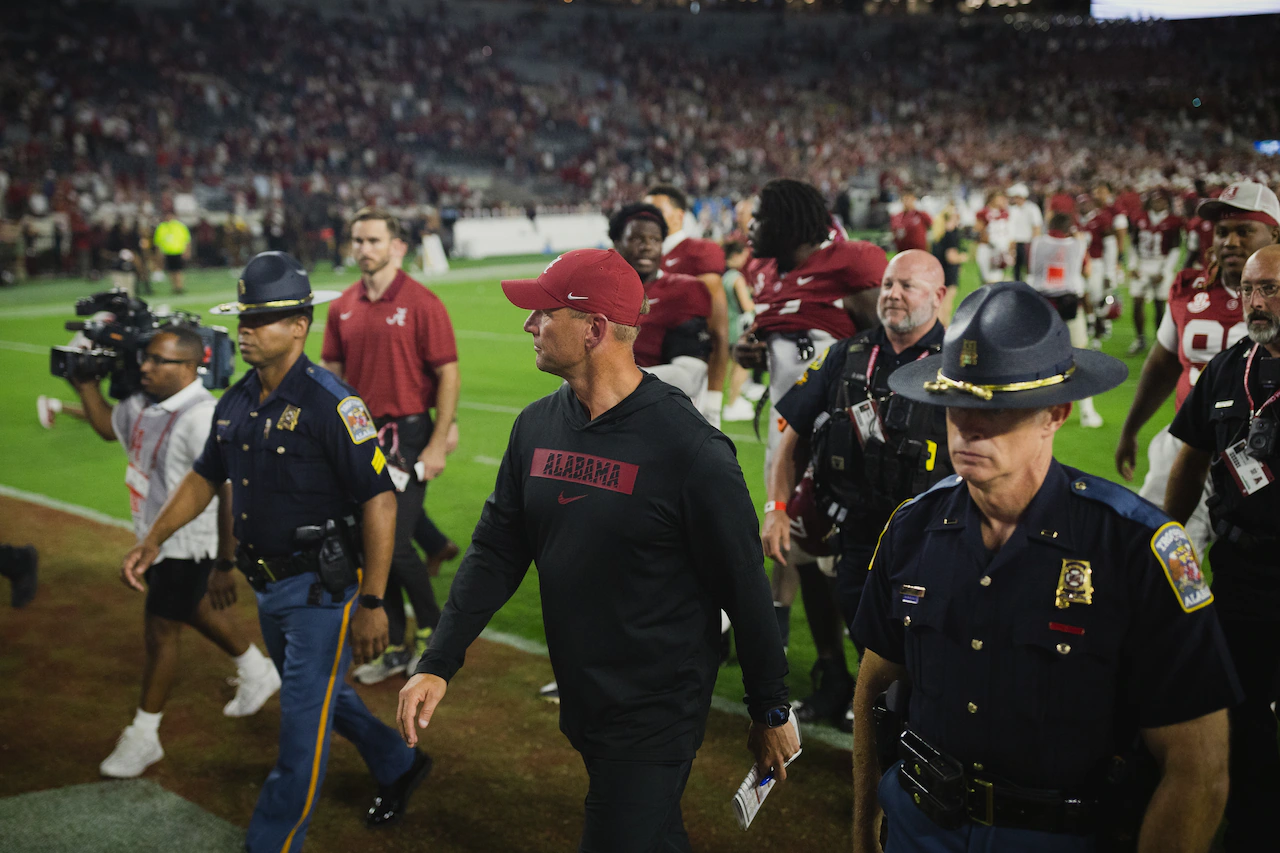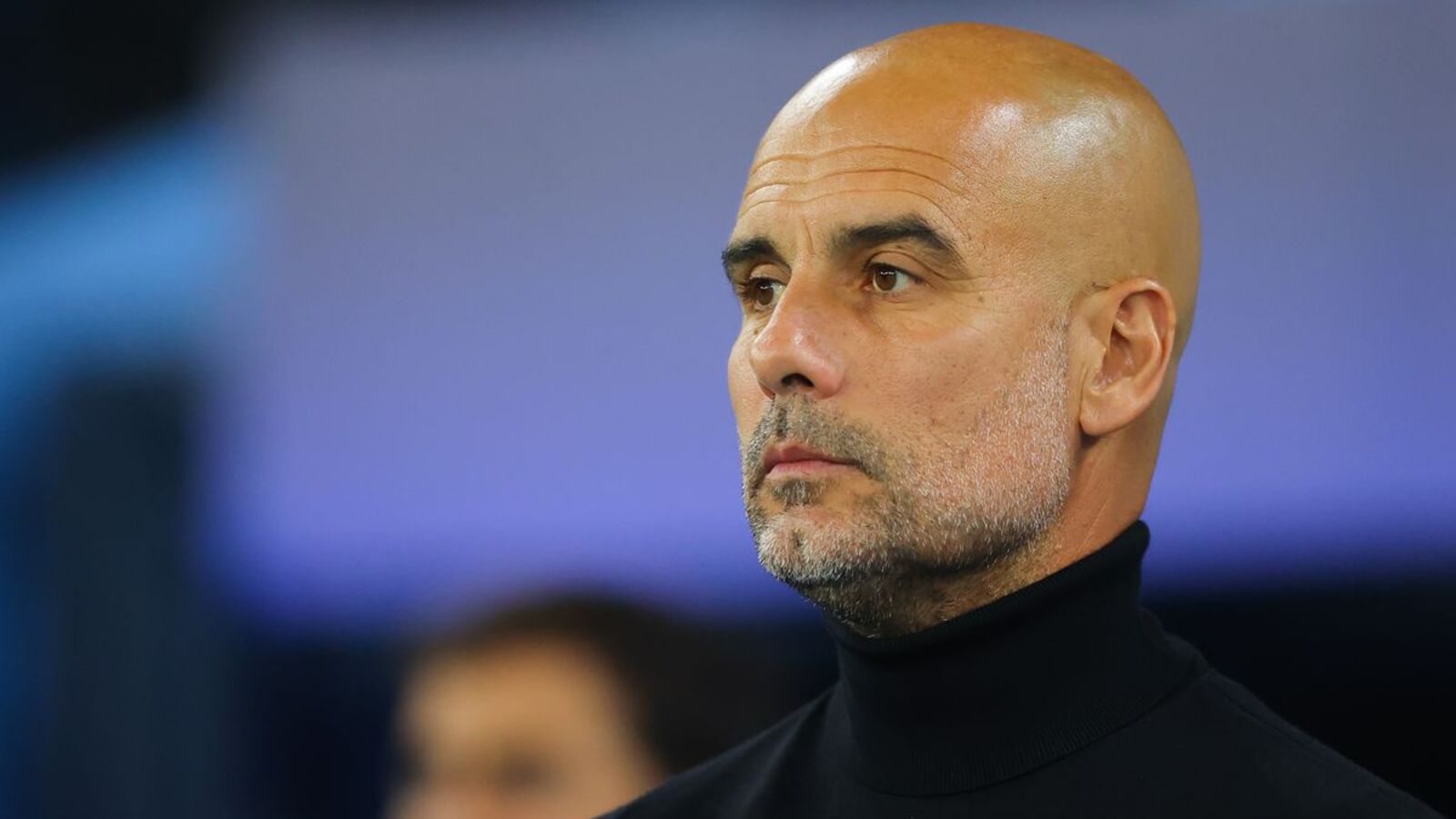“He took the bull by the horns”: How Kalen DeBoer’s fiery transformation saved Alabama’s season after a disastrous start

CLEVELAND, Ohio — After Alabama’s shocking season-opening loss to Florida State, new head coach Kalen DeBoer faced a critical crossroads: continue with his naturally reserved coaching style or dramatically reinvent his sideline presence to inject urgency into a team needing drastic changes.
According to ESPN’s Alex Scarborough, DeBoer’s decision to embrace a more fiery persona may have saved the Crimson Tide’s season.
Speaking on The Paul Finebaum Show, Scarborough revealed the dramatic transformation in DeBoer’s approach following the humbling defeat in Tallahassee.
“He basically has taken the bull by the horns. And you’ve seen a different coach. You’ve seen a guy who is not as reserved on the sideline and stoic and all of those words you want to use. You’re seeing a guy who is snapping at players, snapping at referees, snapping at coaches,” Scarborough explained, painting the picture of a coach who recognized that his new program required a different version of leadership than he had previously employed.
This conscious shift in DeBoer’s demeanor came after a sobering realization about Alabama’s locker room culture.
As Scarborough noted, “I think he took the temperature of a locker room and said, ‘It’s not where I want it to be. Let me ramp this thing up.’”
The transformation has caught many by surprise, including Alabama players themselves.
“You’re sort of seeing in the comments like Germie Bernard said today, it’s a surprise to Germie that he could that Kalen can go there,” Scarborough revealed, suggesting that this more intense version of DeBoer was a side that few expected from the typically composed coach.
This leadership pivot addresses one of the fundamental challenges DeBoer faced upon taking over at Alabama: the difference between inheriting a strong, player-led culture (as he had at Washington) versus needing to establish that culture himself.
When players didn’t step up to fill the leadership void after the Florida State loss, DeBoer recognized he needed to personally drive the energy and accountability.
The results have been dramatic.
In the two games since implementing this new approach, albeit against lesser competition, Alabama has outscored opponents by a combined 111-4. More importantly, the team has displayed the passion and intensity that was noticeably absent in Tallahassee.
But the ultimate test awaits in Athens against Georgia. As Scarborough pointedly wondered.
“As much as football is about X’s and O’s and, five-star talent and all these things… you got to play with fire.” Scarborough said. “If you don’t, you’re going to get exposed… Can they do it in Athens?”
This question cuts to the heart of Alabama’s season.
Can a coach-driven cultural shift produce the same results as the player-led culture that characterized Alabama’s dynasty under Nick Saban? Can manufactured fire burn as hot as organic intensity, especially in a hostile environment against an elite opponent?
The transformation of DeBoer from reserved tactician to sideline firebrand represents more than just a personal evolution – it symbolizes the adaptive challenges facing coaches in modern college football. Sometimes X’s and O’s must take a backseat to emotional intelligence and psychological motivation.
For Alabama fans, the dramatic shift in DeBoer’s coaching style offers hope that their new leader possesses the flexibility and self-awareness to evolve based on his team’s needs.
For DeBoer himself, the coming matchup with Georgia will reveal whether his midseason reinvention was a temporary fix or the beginning of a new, more demonstrative chapter in his coaching career.



